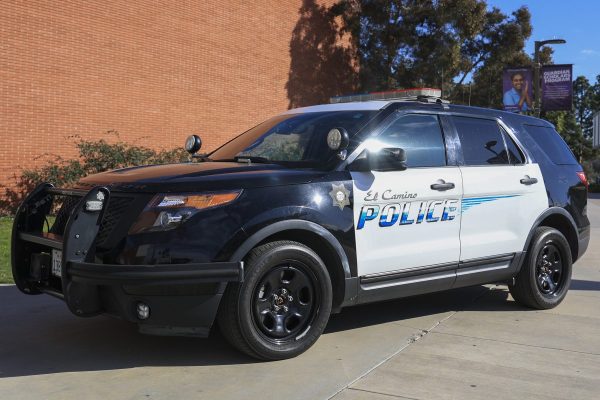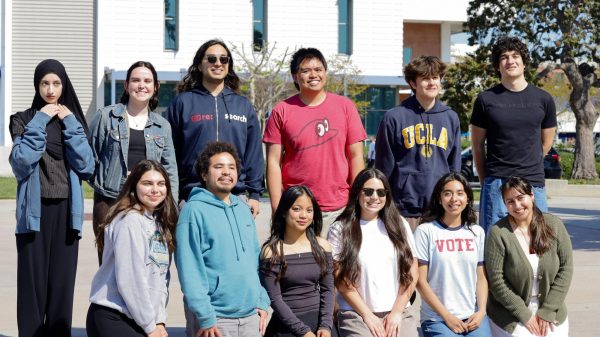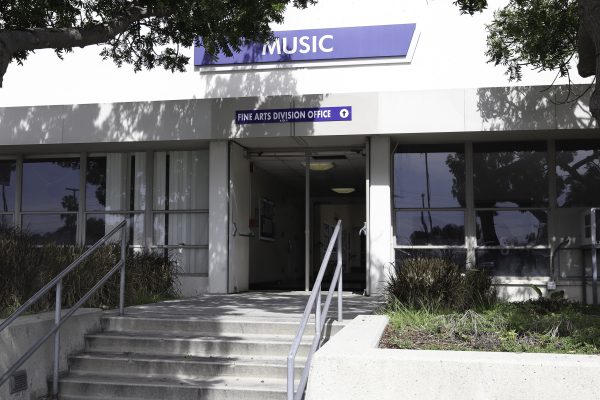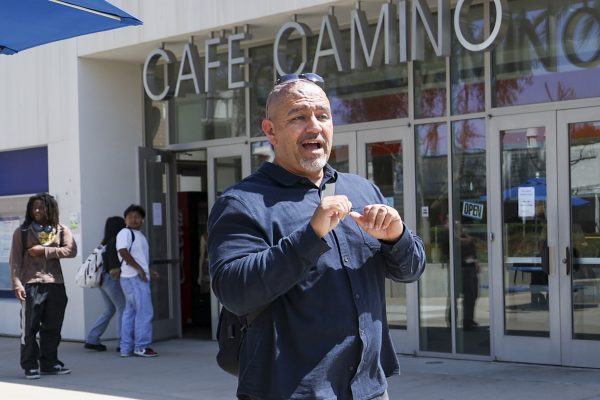El Camino feels the need, the need for Wi-Fi speed
El Camino’s Chief Technology Officer Loic Audusseau speaks about campus-wide Wi-Fi infrastructure upgrade during the Board of Trustees meeting on March, 20. In addition to upgrading the Wi-Fi infrastructure across campus, Audusseau said the current plan also expands Wi-Fi coverage to all parking lots and stadiums. (Khoury Williams | The Union)
Upgrading Wi-Fi access points, expanding coverage and implementing more outdoor access points including the stadium and parking lots is part of a new multi-phase project that has been approved by El Camino College’s Board of Trustees.
The first phase of the project was approved during the March 20 meeting and is estimated to be completed in three to four months.
Pending future Board approval, the second phase of the project to complete El Camino’s wireless network expansion might take up to 12 months depending on the availability of needed equipment.
“We as an institution are very much aware of some of the concerns expressed by our student population with regard to Wi-Fi coverage,” Chief Technology Officer Loic Audusseau said during a conference Zoom meeting.
A proponent of this project, Audusseau told The Union why he is stoked about the multi-phase project.
“I’m excited about this initiative because it’s one of those few IT [Information Technology] projects when you know that you are going to make an impact,” Audusseau said.
It has been approximately six years since El Camino College last upgraded its wireless network infrastructure in Nov. 2017, when the system upgraded to Wi-Fi 5.
Audusseau said when he and other members were creating the design of the new Wi-Fi infrastructure, they started talking to faculty members, employees and students.
This is where they realized that for many students, El Camino is the only place where they can get reliable internet access.
“Immediately our decision was, okay, let’s expand our Wi-Fi coverage,” Audusseau said.
While getting feedback for the network on campus, Audusseau noticed many students were not connected to Wi-Fi and were instead having trouble with their cellular coverage on campus.
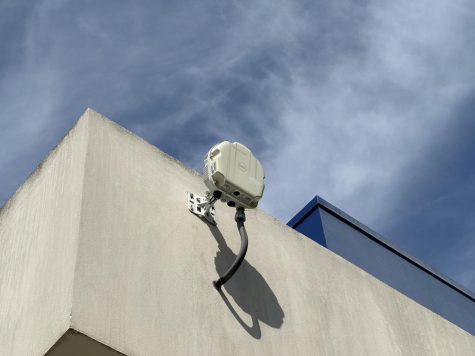
“There are some dead spots around campus for cellular coverage,” Audusseau said. “Our focus right now is on Wi-Fi, the next step will be to reach out to cellular providers and work with them to improve coverage.”
As part of the improved coverage, indoor access points are slated to be upgraded to Wi-Fi 6E as well as outdoor access points which would be upgraded to Wi-Fi 6. Both offer faster speeds and less bandwidth congestion compared to Wi-Fi 5.
Director of Public Information and Government Relations Kerri Webb was also in the meeting with The Union via Zoom.
Webb said she noticed when coming to work if she does not have the Wi-Fi on she would unknowingly be using her cellular data and eventually get a data limit approaching notification.
“That’ll explain why I’ll be on a Zoom call, start in my office but have to walk to another part of campus and then I’ll fall off the call,” Webb said.
Audusseau expressed this example as one reason to have additional Wi-Fi access points around campus so people won’t have to use cellular data.
“If you’re part of El Camino, you should be getting Wi-Fi access all over El Camino, no compromise,” Audusseau said.
Business administration major Yashua Pena, 22, said he connects to the Wi-Fi network on his laptop when on campus.
When not using his laptop, Pena connects his phone to the network when he can because he has cellular connection troubles throughout certain areas on campus.
“When I’m in the buildings I connect to the Wi-Fi, but when I leave I get disconnected,” Pena said.
In order to see where access points should be installed, CDW-G, a division of CDW, which is a provider of technology products and services to educational institutions, would need to survey the current campus network.
This survey would start phase one of the project and give a more accurate cost of the total equipment and services needed for both phases.
“It’s really about making sure that students who can’t have reliable internet access at home or anywhere they go…that we take care of them,” Audusseau said. “We have them covered, that’s my absolute priority.”
Editor’s Note: Provided updated clarification on project completion timeline on April 6, 2023, at 7:43 a.m.




